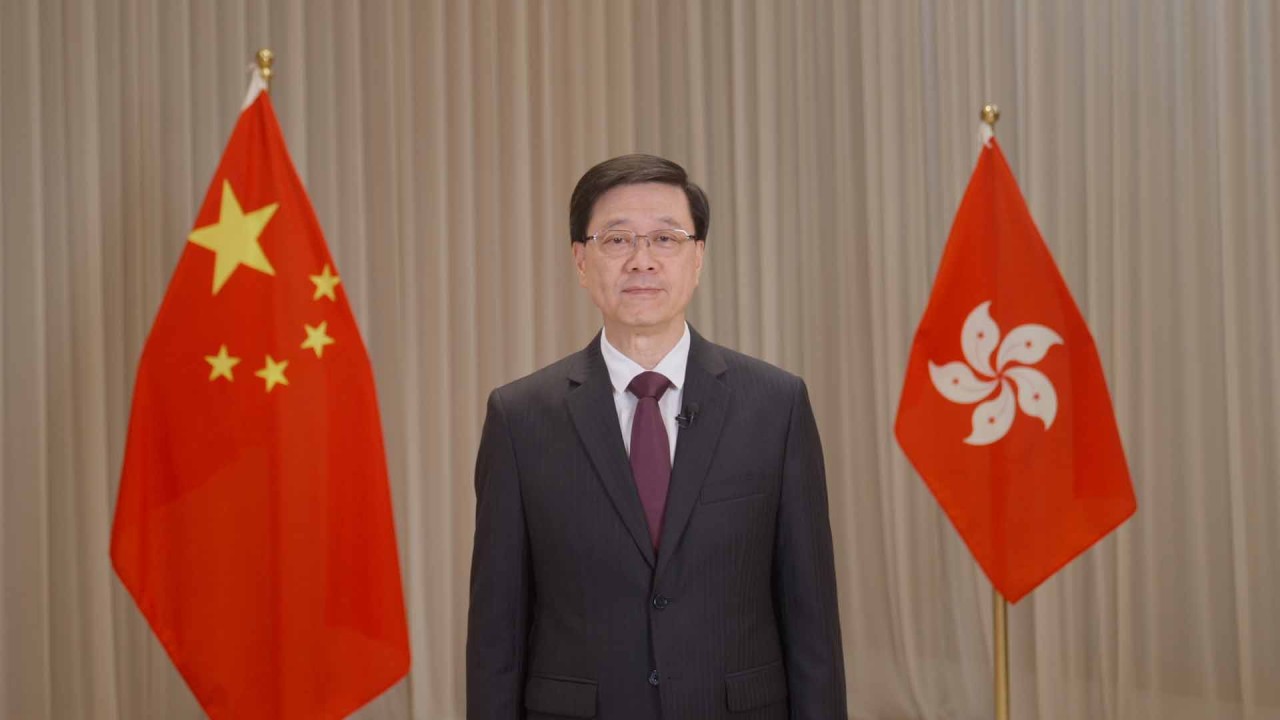
Hong Kong ‘Captain America’ first inmate blocked from early release from prison under new domestic national security law
- Activist Adam Ma was not granted early release for good behaviour because of the enactment of the Safeguarding National Security Ordinance, sources say
- He was sentenced on appeal to five years in jail for inciting secession during anti-government protests
A Hong Kong man convicted of inciting secession has become the first inmate to have his early release from prison blocked under the city’s new domestic national security legislation, the Post has learned.
Adam Ma Chun-man did not receive early release normally granted for good behaviour in prison because of the enactment of the Safeguarding National Security Ordinance, which took effect on Saturday, sources said on Monday.
He was jailed for secession offences committed during the 2019 anti-government protests.
Former Hong Kong food delivery worker wins appeal against secession jail term
Ma, known as the “second-generation Captain America” for dressing as the Marvel character at demonstrations, was originally sentenced to five years and nine months in prison in 2021. His sentence was later reduced to five years on appeal.
The Post had learned that he was scheduled to be released on Monday for good behaviour. Previously, as a general rule, a prisoner’s sentence could be cut by one-third for good conduct.
But the new legislation, mandated under Article 23 of the Basic Law, the city’s mini-constitution, stipulates that a prisoner convicted of national security offences “must not be granted remission” unless the commissioner of correctional services is satisfied the move will not compromise national security.
The legislation extends to anyone jailed under the Beijing-imposed national security law enacted in June 2020.
A spokesman for the Correctional Services Department said it would not comment on individual cases.
But he cited amendments to rules on the post-release supervision of prisoners in accordance with the ordinance.
If someone was convicted of an offence endangering national security, his case would not be reviewed by the Post-Release Supervision Board for early release unless the commissioner of correctional services was satisfied that early release would not be contrary to the interests of national security, he noted.
“This applies to those who have been convicted of an offence of endangering national security and are serving sentences, no matter whether the sentences were imposed before, on the day, or after the [ordinance] came into force,” the spokesman said.
He said the commissioner would consider each relevant case strictly in accordance with the relevant law.
Hongkongers who back critics of domestic national security law could be in breach
Ma, an activist, was convicted of inciting secession on 20 occasions in a three-month span, shortly after the Beijing-imposed national security law took effect in June 2020.
He had chanted slogans such as “Hong Kong independence, the only way out”, “Hongkongers, build our country” and “Liberate Hong Kong; revolution of our times” – a signature rallying call of the 2019 protests.
Ma had also promoted his political ideals on social media and during interviews with news outlets, where he called on other residents to advocate independence in schools and prepare for the next “revolution”.
He had called himself a “second-generation Captain America”, in reference to a prominent protester who had dressed as the superhero during the 2014 Occupy movement and a riot in Mong Kok in 2016.
The enactment of the ordinance will also have implications for fugitives wanted by national security police as they can face a list of sanctions once designated by the security chief as an absconder under a new mechanism.
The clauses were among those approved by lawmakers during 12 days of marathon proceedings to quickly introduce the legislation, which was designed to target five types of offences: treason; insurrection; theft of state secrets and espionage; sabotage endangering national security; and external interference.



